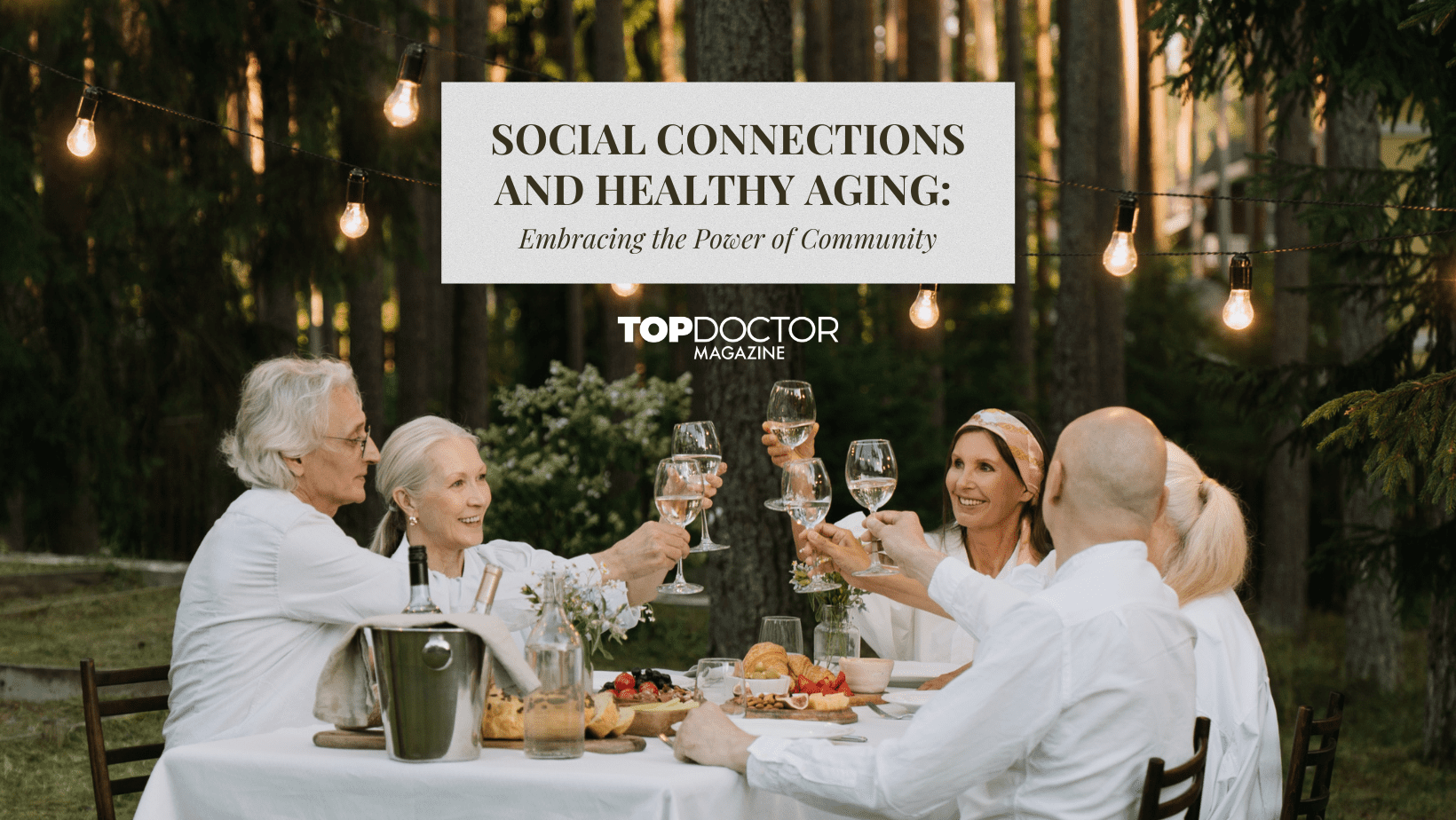Introduction
As individuals age, social connections, and relationships play a crucial role in promoting healthy aging and overall well-being. The significance of social interactions goes beyond mere companionship. Engaging with others and actively participating in communities can profoundly affect physical, mental, and emotional health. In this article, we will explore the benefits of social engagement, discuss the importance of community involvement, and provide strategies to combat social isolation among older adults, ultimately fostering a vibrant and fulfilling aging experience.
The Benefits of Social Engagement
- Cognitive Health: Active social participation stimulates the brain and promotes cognitive function. Engaging in conversations, debates, and intellectual pursuits helps maintain mental sharpness, memory, and overall cognitive abilities. Social interactions challenge the mind and provide opportunities for continuous learning and growth.
- Emotional Well-being: Social connections provide emotional support, companionship, and a sense of belonging, which are crucial for emotional well-being. Strong social ties can reduce feelings of loneliness, depression, and anxiety. Sharing experiences, laughter, and emotional support with others create a positive and nurturing environment for mental health.
- Physical Health: Active engagement in social activities has shown a positive correlation with enhanced physical health outcomes. It can motivate individuals to adopt healthier habits like regular exercise, balanced nutrition, and self-care. Participating in group activities and community events often involves physical movement, fostering an active lifestyle that benefits overall physical well-being.
The Importance of Community Involvement
- Volunteerism: Engaging in volunteer activities enables people to give back to their communities while experiencing a sense of purpose and fulfillment. Volunteering provides opportunities for social connections, helps combat social isolation, and offers a chance to use skills and expertise to impact society positively.
- Intergenerational Programs: Interacting with younger or older generations through intergenerational programs promotes mutual understanding, breaks down age-related stereotypes, and provides opportunities for learning and growth for both older adults and younger individuals. Such programs can include mentoring, tutoring, or participating in community initiatives that unite different age groups.
- Active Participation in Community Groups: Joining clubs, organizations, or community groups based on shared interests fosters social connections and a sense of belonging. These groups provide platforms for meeting like-minded individuals, engaging in hobbies, pursuing passions, and participating in activities that promote social interaction and personal fulfillment.
Strategies to Combat Social Isolation
- Utilize Technology: Technology can be a valuable tool to bridge distances and connect with others. Most people have access to and the ability to use social media platforms, video calls, or online communities as an easy way to stay in touch with family and friends and engage in virtual social activities. Local community centers may offer technical assistance programs to help older adults navigate ever-changing digital platforms.
- Participate in Senior Centers and Community Programs: Senior centers and community programs provide opportunities for social engagement and access to various activities, including exercise classes, educational workshops, arts and crafts, and group outings. These programs create a supportive environment where individuals can interact, learn, and form new connections.
- Reach Out and Stay Active: Taking the initiative to maintain and strengthen existing relationships is vital. Reach out to friends, family, or neighbors regularly through phone calls, visits, or attending social events. Additionally, pursuing personal interests and hobbies, individually or as part of a group, can expand social networks and foster new connections.
Conclusion
Social connections and community involvement are essential components of healthy aging. By embracing the power of social engagement, older and younger generations can experience numerous benefits that positively impact their physical, mental, and emotional well-being. Combating social isolation through active community participation, volunteerism, and intergenerational interactions leads to a richer and more fulfilling aging experience. Let us prioritize social connections and create an inclusive society that supports and values the contributions of all generations, enabling each other to age gracefully and joyfully throughout each season of life.
At TopDoctor Magazine, our mission is to foster connections within the health and wellness community, acting as a vital bridge between doctors and patients and facilitating collaborations between medical companies and healthcare professionals.
Our purpose extends to empowering our readers, providing them with the knowledge to make well-informed healthcare and lifestyle decisions.
We take pride in being the ultimate resource for interviews with health and wellness leaders, delivering trending medical news, and covering a wide range of healthy living topics.






0 Comments